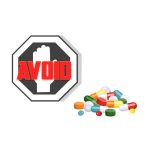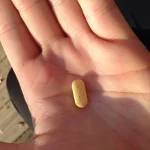Unmasking the Underworld: The World of Illegal Pill Identifiers

In the age of information, access to medical knowledge has become easier than ever. However, this accessibility also opens the door to potential misuse and illegal activities. One such concerning issue is the rise of illegal pill identifiers, a shadowy corner of the internet where individuals seek to exploit the vulnerability of those in need.
In this article, we will delve into the realm of illegal pill identifiers, exploring their motives, methods, and the potential risks they pose to public health.
Understanding Pill Identification
Pill identification is a crucial aspect of healthcare. It involves identifying a medication based on its size, shape, color, and imprints. Legitimate sources, such as healthcare professionals, pharmacies, and free pill identifier apps and websites including online databases, provide accurate information about various medications to ensure patient safety.
However, the rise of illegal pill identifiers complicates this landscape. These unauthorized platforms claim to offer pill identification services but operate outside the boundaries of legal and ethical standards. Instead of aiding individuals in understanding their medications, these platforms often have ulterior motives.
Motives Behind Illegal Pill Identifiers
1. Drug Misuse and Abuse: Illegal pill identifiers frequently attract individuals seeking information about controlled substances. These users may be looking for ways to misuse or abuse prescription medications for recreational purposes. The anonymity of online platforms facilitates such activities, making it challenging for authorities to track and intervene.
2. Counterfeit Medications: Another motive behind illegal pill identifiers is the promotion of counterfeit medications. Criminal entities take advantage of individuals seeking cheaper alternatives by replicating popular prescription drugs. These fake medications not only lack the intended therapeutic effect but can also pose severe health risks due to unknown ingredients and improper manufacturing processes.
3. Criminal Networks: Some illegal pill identifier websites are linked to broader criminal networks involved in drug trafficking and other illicit activities. These platforms may serve as a front for more significant criminal enterprises, using the guise of providing information to further their underground operations.

Methods Employed by Illegal Pill Identifiers
1. Online Platforms: Illegal pill identifiers often operate through websites and forums, taking advantage of the vast reach of the internet. These platforms may mimic legitimate medical websites, making it challenging for users to discern their authenticity.
2. Dark Web: The dark web, a hidden part of the internet accessible only through specialized software, serves as a breeding ground for various illegal activities. Illegal pill identifier services can be found on the dark web, providing a cloak of anonymity for those seeking to exploit vulnerable individuals.
3. Social Media: Social media platforms are also utilized by illegal pill identifiers to reach a broader audience. Some may create seemingly innocent groups or pages, drawing in users seeking information about medications. Once engaged, these platforms can be used to disseminate misinformation or facilitate illicit transactions.
Risks Associated with Illegal Pill Identifiers
1. Health Risks: One of the most significant dangers posed by illegal pill identifiers is the potential for users to receive inaccurate information about medications. This misinformation can lead to incorrect dosages, adverse reactions, and other health risks. In cases involving counterfeit medications, the health consequences can be severe.
2. Legal Consequences: Users engaging with illegal pill identifier services may unknowingly involve themselves in illegal activities. Law enforcement agencies actively monitor and investigate such platforms, and individuals seeking controlled substances or participating in illicit transactions may face legal consequences.
3. Erosion of Trust in Healthcare Systems: The proliferation of illegal pill identifiers undermines the trust individuals place in legitimate healthcare systems. When individuals turn to unauthorized sources for information, it erodes the foundations of patient-doctor relationships and compromises public health.
4. Worsening the Opioid Crisis: The opioid crisis, already a significant public health concern, is exacerbated by the activities of illegal pill identifiers. These platforms contribute to the availability of opioids in the illicit market, fueling addiction and overdose rates.
Combating Illegal Pill Identifiers
1. Education and Awareness: Public awareness campaigns are essential to educate individuals about the dangers of engaging with illegal pill identifiers. Informing the public about the risks associated with seeking medical information from unauthorized sources can help deter individuals from using these platforms.
2. Collaboration with Tech Companies: Governments and law enforcement agencies must collaborate with technology companies to identify and shut down illegal pill identifier websites. This includes monitoring online spaces, implementing stricter regulations, and employing advanced technologies to track and trace illegal activities.
3. Legal Measures: Strengthening legal frameworks to address illegal pill identifier activities is crucial. Enhanced penalties for those operating such platforms and stricter regulation of online spaces can act as deterrents and help curb the growth of these illicit services.
4. Promoting Legitimate Sources: Encouraging individuals to rely on legitimate sources for pill identification, such as healthcare professionals and reputable online databases, is essential. Providing accessible and user-friendly platforms for accurate medication information can divert individuals from seeking help from illicit sources.
Conclusion
Illegal pill identifiers pose a serious threat to public health, contributing to drug misuse, the proliferation of counterfeit medications, and the erosion of trust in healthcare systems. Addressing this issue requires a multi-faceted approach that involves education, collaboration with technology companies, legal measures, and the promotion of legitimate sources for medication information.
As technology continues to advance, so too must our efforts to safeguard the integrity of healthcare information. By staying vigilant and proactive, we can work towards dismantling the infrastructure of illegal pill identifiers and protecting the well-being of individuals seeking accurate and reliable medication information.





